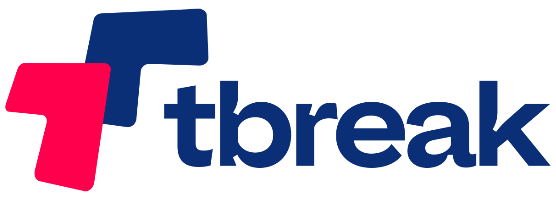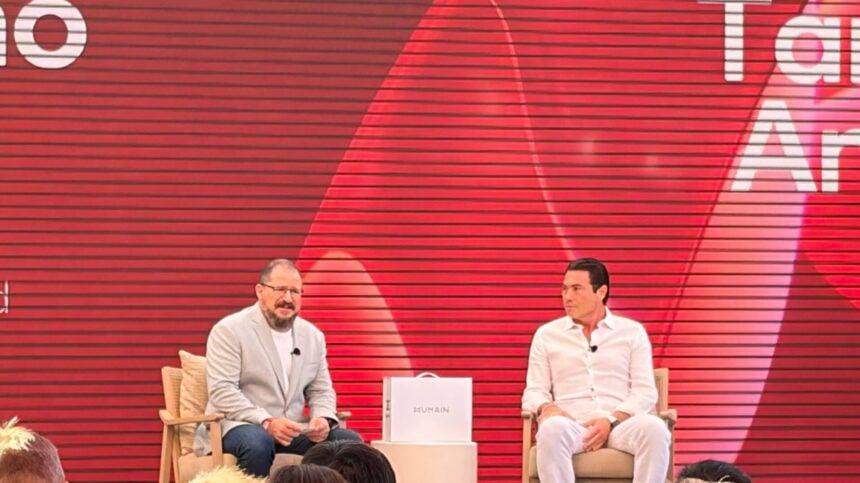In a tech landscape dominated by hype and buzzwords, Saudi Arabia–based HUMAIN is carving out something refreshingly tangible: a company that isn’t just talking about AI but living it, breathing it, and rebuilding the enterprise stack from the ground up.
At the center of this mission is CEO Tareq Amin, who has spent the past year driving HUMAIN from a bold idea to a fully operating AI powerhouse that already runs its entire internal operations on its own platform — and now aims to bring that model to enterprises worldwide.
A Company Born to Fix Fragmentation
HUMAIN was created as a national initiative with global ambitions, merging public and private entities to accelerate Saudi Arabia’s AI readiness. Tareq is candid about the why: most organizations are drowning in fragmented IT systems.
One of my customers was running 2,981 separate IT applications at a cost of $2.5 billion annually…In an age where AI can orchestrate workflows, why should anyone still be jumping from app to app?
HUMAIN’s answer is HUMAIN ONE, a horizontal AI platform that sits above traditional software stacks, orchestrating intent-to-action across HR, finance, legal, and beyond. No more fragmented dashboards — users simply tell the system what they need. Want to request leave, run payroll, or draft an NDA? Just say it. HUMAIN ONE interprets the intent, calls the right AI agents, and executes end-to-end, with no human copy-paste chains .
Horizon Pro: More Than a PC
To deliver this vision, HUMAIN didn’t just write software — it built its own hardware. Horizon Pro, developed in partnership with Qualcomm and announced at Snapdragon Summit, is a premium Windows-on-ARM device co-designed to run HUMAIN’s agentic platform with local AI inference for maximum speed and security . Tareq is adamant this isn’t just another PC play:
Humain did not create this to be a PC maker. We created this to redefine the user experience. Gone are the days of icons and fragmented apps. This is the world’s first implementation of AI agentic architecture for enterprise.”
The company is taking a subscription-first approach, promising enterprises a lower total cost of ownership and an always-up-to-date device fleet. Hardware is the enabler, not the profit center.
Culture as the Hardest Problem
For all the cutting-edge tech, Tareq insists the toughest challenge hasn’t been building models or devices — it’s been changing mindsets.
Most people think bringing generative AI into an enterprise magically solves everything. It doesn’t. You have to redesign processes and break down organizational silos .
Inside HUMAIN, this meant scrapping third-party ERP systems, building its own HR and payroll tools with GPT-style code generation, and re-skilling staff to become product managers rather than administrators. The result? Payroll that once required 11 employees now runs with a single human in the loop, supported by an AI agent .
Building for Global Scale
Though HUMAIN was born in Riyadh, its mission is explicitly global. Its inferencing cluster is already serving traffic from over 135 countries, with only 3% of usage coming from Saudi Arabia . Tareq frames this as “designed in Saudi for the world” — and he’s blunt that HUMAIN will measure success by how much revenue it exports as part of the kingdom’s digital economy vision, not how much it earns locally.
What’s Next
The Horizon family will soon expand with Horizon S for students and Horizon Ultra with built-in 5G and Qualcomm’s latest Snapdragon X2 platform . On the software side, HUMAIN will launch HUMAIN ONE’s marketplace and open it up to third-party AI agents, with plans to make parts of the platform open source .
And in 2026, expect a shift beyond screens: HUMAIN is working on voice-first, wearable-like devices capable of understanding dialects and emotions — the next step toward truly ambient, agent-driven computing .























